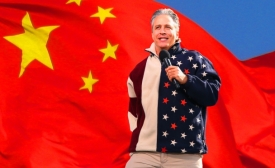united states
Considering the month of April alone, the State Department said it was "deeply concerned" about each of these situations: justice in Turkey; peaceful challenges of official Chinese policies; restrictions of freedom in Egypt; a Ugandan raid on a U.S.-funded medical facility; the humanitarian crisis in Burma and certain actions of the Republika Srpska, among other various and diverse issues — many extremely serious.
From April 22 to April 29, U.S. President Barack Obama visited Japan, South Korea, Malaysia, and the Philippines in what many observers called an attempt to solidify his administration’s “rebalance to Asia.” The Diplomat spoke with Dr. Jonathan Pollack, a senior fellow at the Brookings Institution, about Obama’s goals for the trip, and the major events at each of his stops.
Manifestoes about U.S. “decline,” have become a publishing juggernaut. But this literature is demolished in a beautifully written, persuasive new book from Bruce Jones, the Brookings Institution senior fellow. In Still Ours to Lead: America, Rising Powers, and the Tension between Rivalry and Restraint, Jones explains that the declinists have it all wrong.
The US Department of State is transitioning into a digital context and public diplomacy is evolving in the process. Michael Ardaiolo discusses the U.S. public diplomacy’s shift toward a digital world with Dr. Craig Hayden.
I had to laugh when I heard about the U.S. Agency for International Development’s botched effort to create a Twitter-like platform for Cuba intended to undermine the communist regime. Even the name — ZunZuneo — to the State Department’s credit, sounded like something cooked up in Silicon Valley, not Foggy Bottom.

An exclusive interview with Gudabaihua (谷大白话) on American late-night talk shows.
Yale University is creating a new Yale Leadership Center in Beijing that will host conferences, workshops, and other events developed by all of the university’s schools and programs. The center will open next fall.







